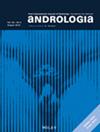Investigation of Chromosomal Abnormalities and AZF Microdeletions in Iranian Infertile Men and Their Significant Association
Abstract
Objective
Chromosomal abnormalities participate in male infertility by affecting a variety of physiological functions including spermatogenesis, hormonal homoeostasis, and semen quality. The long arm of the Y chromosome has an important role in the procedure of spermatogenesis. Yq-microdeletions in AZFa, b, and c regions mean losing the genes handling the spermatogenesis process, which leads to defective sperm production. The aim of this study was to investigate the frequency and type of chromosomal abnormalities and AZF microdeletions in infertile men in the southwest of Iran. Also, we analyzed the association between chromosomal abnormalities and AZF microdeletions. Furthermore, we have carried out a comprehensive literature review on 35 studies performed in Middle East countries since 2000.
Methods
A total of 449 infertile men, 359 patients with azoospermia and 90 patients with oligozoospermia were enrolled in our study from 2021 to May 2024. Karyotype analysis in all patients and AZF microdeletion screening in azoospermic patients were applied using standard cytogenetic methods and multiplex polymerase chain reaction (PCR) method, respectively. Statistical analysis was carried out by SPSS.
Results
The prevalence of chromosomal abnormalities in our sample was 9.2% and 5.6% in azoospermic and oligozoospermic patients, respectively. AZF microdeletions were detected in 5% of azoospermic patients, which AZFc region was the most frequent deleted region in our study. Moreover, patients with chromosomal abnormalities indicated a significantly higher risk for occurrence of AZF microdeletions (p = 8 × 10−5). Further analysis showed a higher risk for incidence of AZF microdeletion in patients with Y-chromosome abnormality compared to patients with any other karyotype (p = 3.5 × 10−8).
Conclusion
The frequency of chromosomal abnormalities and AZF microdeletions are comparable with that found in Middle East countries. Karyotype test and AZF microdeletion analysis is highly recommended for infertile men prior to beginning treatment, helping to select the most appropriate assisted reproductive techniques.


 求助内容:
求助内容: 应助结果提醒方式:
应助结果提醒方式:


